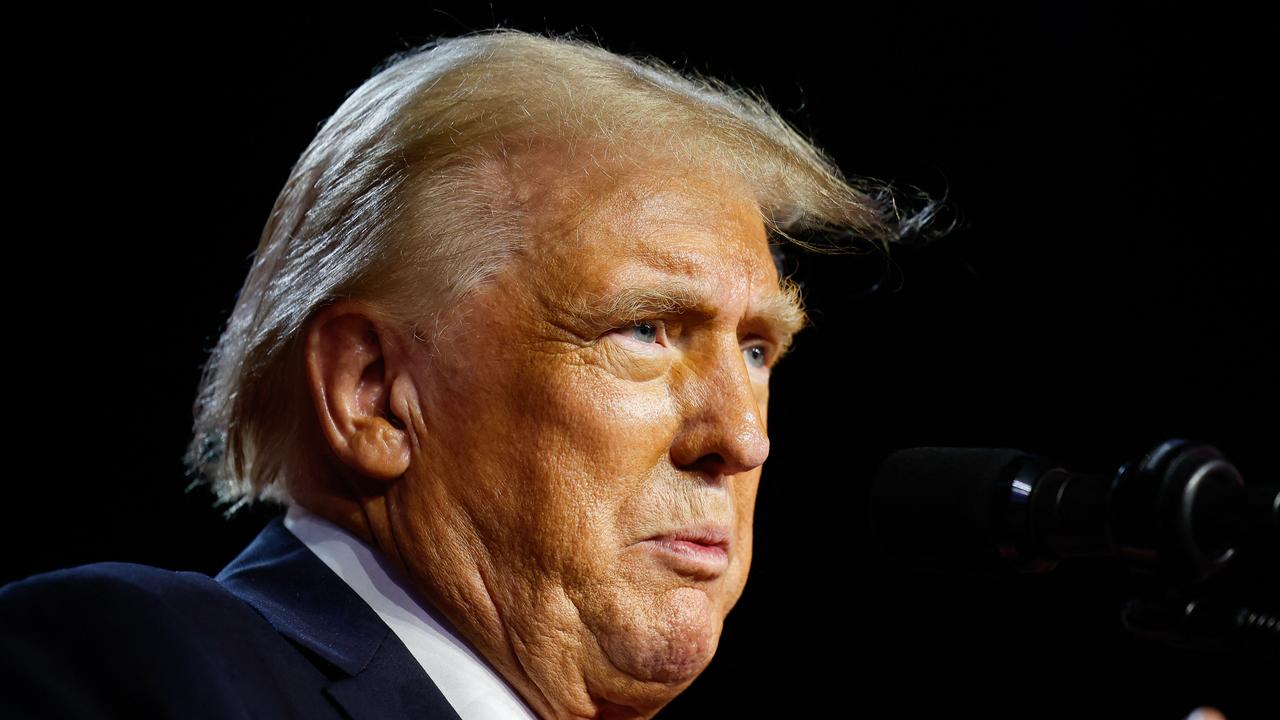What the Gap T-shirt controversy tells us about China’s territorial claims
IF YOU glanced at this T-shirt in a store, you wouldn’t notice anything wrong with it. But the $8 clothing item has infuriated a nation.
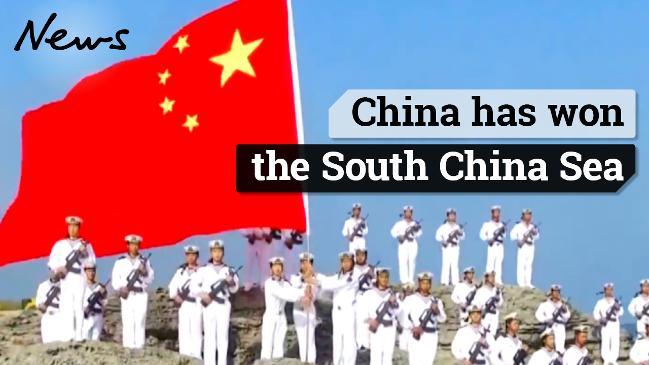
IF YOU want a sense of how strongly China feels about its territorial claims, look at its responses to companies that defy its world view.
Marriott International, Delta Air Lines and now clothing retailer Gap are just a few of the businesses that have felt the rising superpower’s wrath for failing to acknowledge — whether intentionally or not — the country’s territorial claims.
READ MORE: Satellite images prove we can no longer avoid China’s rise
As we speak, tensions are back at boiling point between the United States and China after two US warships sailed near disputed islands in the region.
But despite the West’s ongoing commitment to freedom of navigation in the strategic waters, some say China has already won the longstanding fight.
HOW AN $8 T-SHIRT INFURIATED A NATION
Last week, US clothing retailer Gap was forced to remove a T-shirt which showed an “incorrect map” of China because it left off Taiwan and disputed territories in the South China Sea.
The shirt, which featured the brand logo and the word ‘CHINA’ with an accompanying red map, sparked a furious response for displaying the mainland and not the territories the country claims as its own.
Hundreds of complaints came rolling in after one user posted a photo of the clothing item, taken in the Niagara shopping centre in Canada, on Chinese social media network Weibo.
“Not recognising one-China principle, there is no room for negotiations. GAP should be banned in China, get out of China,” wrote one user.
“We sincerely suggest foreign companies which want to do business in China should avoid damaging China’s national interests,” said another. “Even some of your products only sold overseas may be spotted.”

In a statement, Gap said it “sincerely apologised for this unintentional error”, adding that the product had been pulled from the Chinese market and destroyed.
“Gap Inc. respects the sovereignty and territorial integrity of China. We’ve learned that a Gap brand T-shirt sold in some overseas markets failed to reflect the correct map of China. We sincerely apologise for this unintentional error,” it said in a statement posted on its Weibo account, shortly after the post gained traction.

Gap now joins several other companies that have been accused of contradicting China’s territorial aims through advertisements.
In January, a Chinese regulator suspended Marriott International’s Chinese website and mobile app for a week after it listed four China-claimed territories — Hong Kong, Macau, Taiwan and Tibet — as separate countries. Delta Airlines also came under fire for listing Taiwan and Tibet as separate countries on its website.
The move prompted a number of airlines — including Australian-owned Qantas — to amend their websites in favour of China.
CHINA CHALLENGES US NAVY SHIPS
China’s military has dispatched warships to challenge two US Navy vessels that sailed through disputed territory in the South China Sea.
US officials told Reuters that two US Navy warships sailed near the islands, in a move that drew condemnation from Beijing as President Donald Trump seeks its continued co-operation on North Korea.
The Sunday operation was the latest attempt to counter what Washington sees as Beijing’s efforts to limit freedom of navigation in the strategic waters.
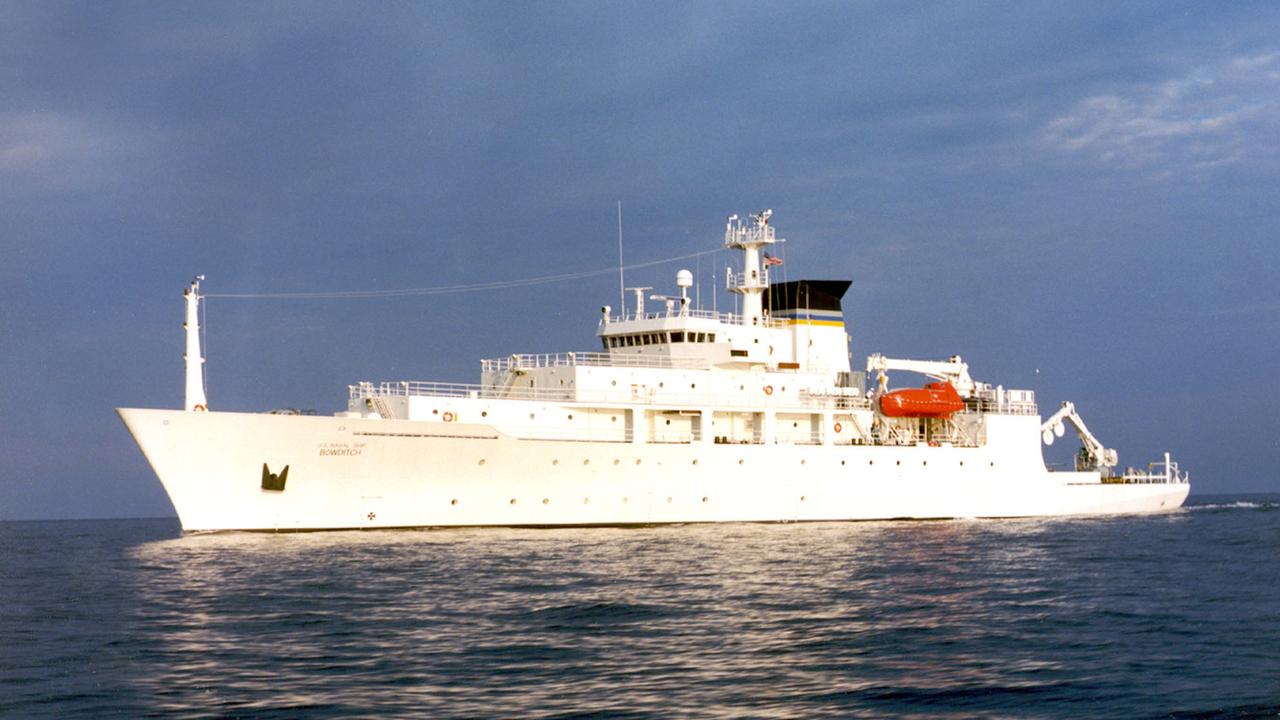
While this operation had been planned months in advance, and similar operations have become routine, it comes at a particularly sensitive time and just days after the Pentagon uninvited China from a major US-hosted naval drill.
The US officials, speaking on condition of anonymity, said the Higgins guided-missile destroyer and the Antietam, a guided-missile cruiser, came within 12 nautical miles of the Paracel Islands, among a string of islets, reefs and shoals over which China has territorial disputes with its neighbours.
The US military vessels carried out manoeuvring operations near Tree, Lincoln, Triton and Woody islands in the Paracels, one of the officials said. Critics of the operations, known as a “freedom of navigation”, have said they have little impact on Chinese behaviour and are largely symbolic.
While the US military did not directly comment on Sunday’s operation, China’s Defence Ministry issued a furious statement in response, saying it had sent ships and aircraft to warn the US warships to leave, and that the US had entered the country’s territorial waters without permission.
The move “contravened Chinese and relevant international law, seriously infringed upon Chinese sovereignty (and) harmed strategic mutual trust between the two militaries”, it said.
In a separate statement, China’s foreign ministry urged the US to stop such actions.
“China will continue to take all necessary measures to defend the country’s sovereignty and security,” it added, without elaborating.
‘CHINA HAS ALREADY WON THE BATTLE’
According to Liberal senator Jim Molan, China has already won the battle for control over the disputed region.
The former senior army office criticised the West for failing to act quickly and decisively to counter China’s encroachment in the region.
“This is the result of the inability of the West to move early on any issue, any strategic issue — Georgia, Ukraine, North Korea,” he told The Australian. “Acting early is difficult and risky but the consequences for not acting early are horrendous.’’
He said Australia now needs to take a new approach and welcome the rise of China from a “position of national strength”.
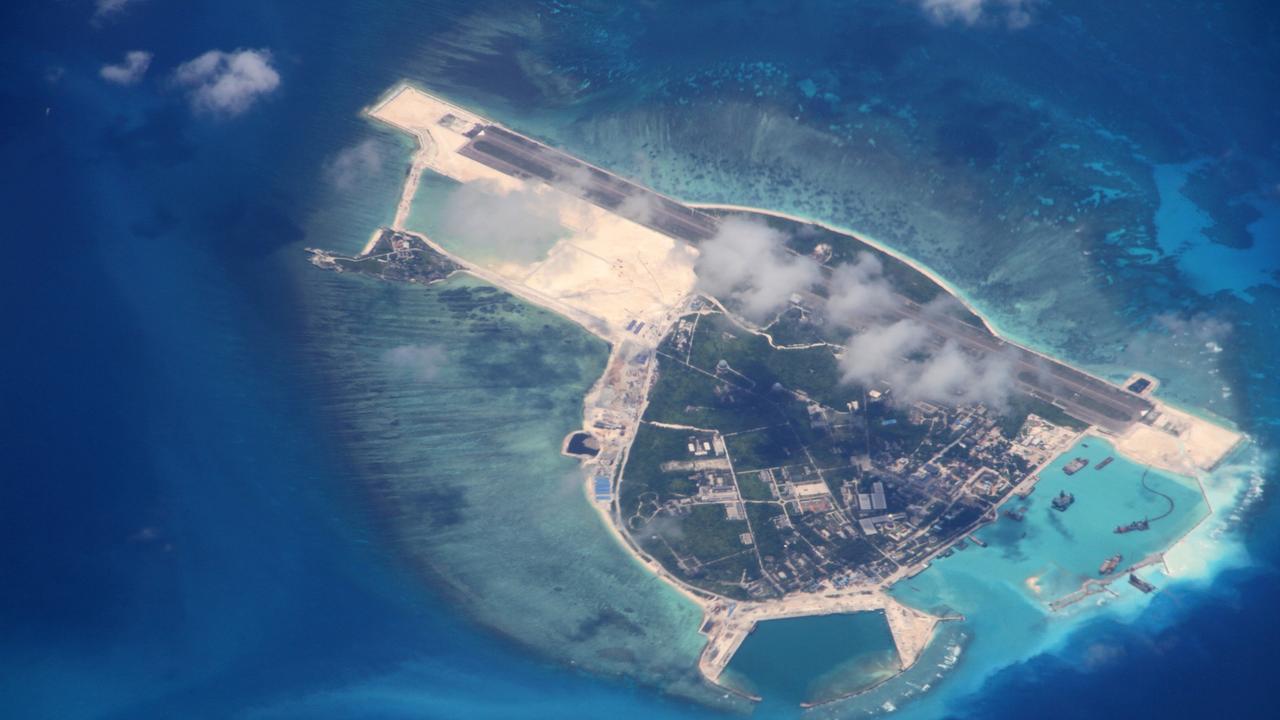
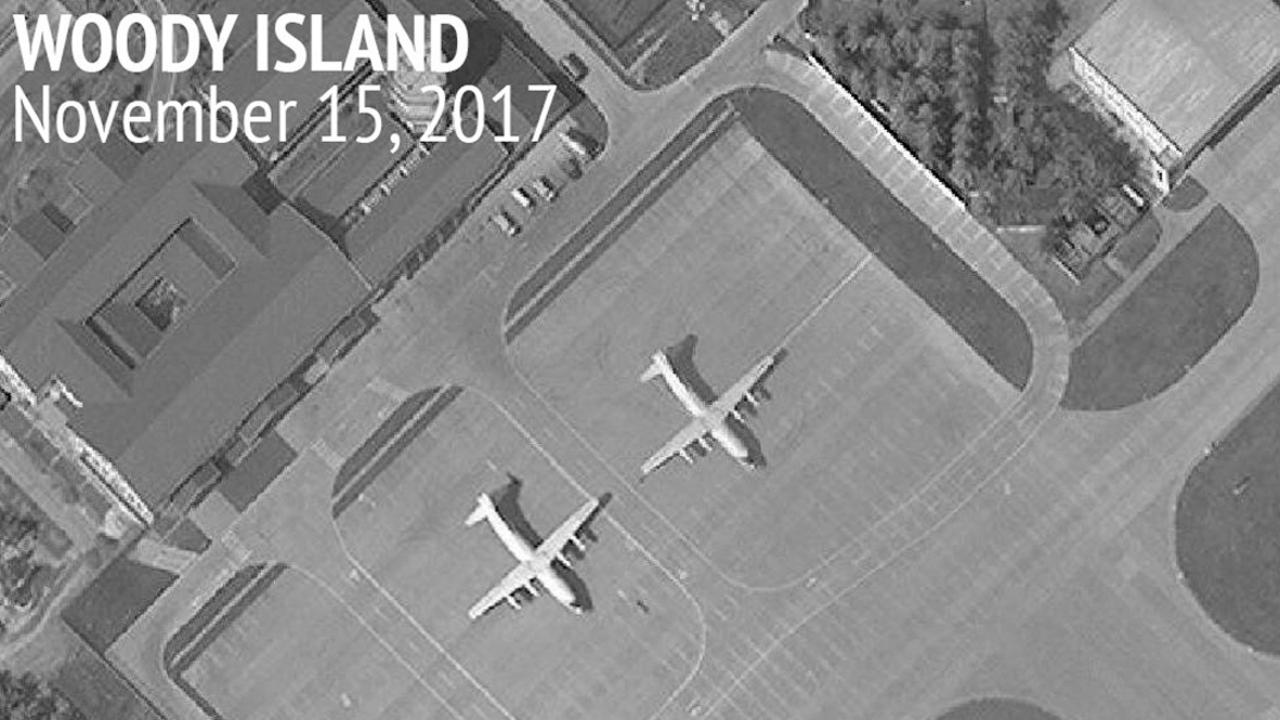
The Turnbull government has recently taken an assertive approach to the South China Sea.
Earlier this month, satellite images monitored by the global Asia Maritime Transparency Initiative think tank confirmed Beijing had been basing illegal military weapons on its artificial islands — including H-6K long-range strategic bombers with a range of over 3500 kilometres.
The islands run adjacent to major sea lanes of communication, and are believed to hold extremely valuable natural resources.
Foreign Minister Julie Bishop condemned China’s actions based on the reports, saying “Australia would be concerned” if they were correct.
“China, of course, has a unique responsibility as a permanent member of the United Nations Security Council, to uphold peace and security around the world,” she said.
“Any action, to militarise unilaterally, features in the South China Sea would go against that responsibility and that role.”
— with Reuters



